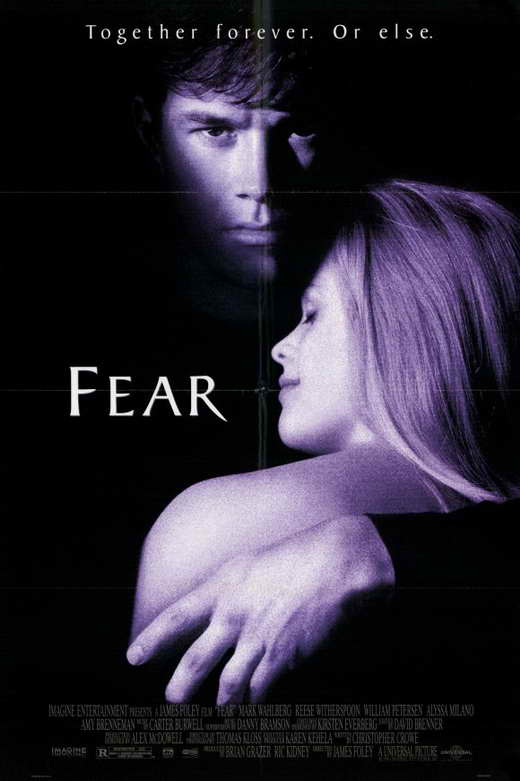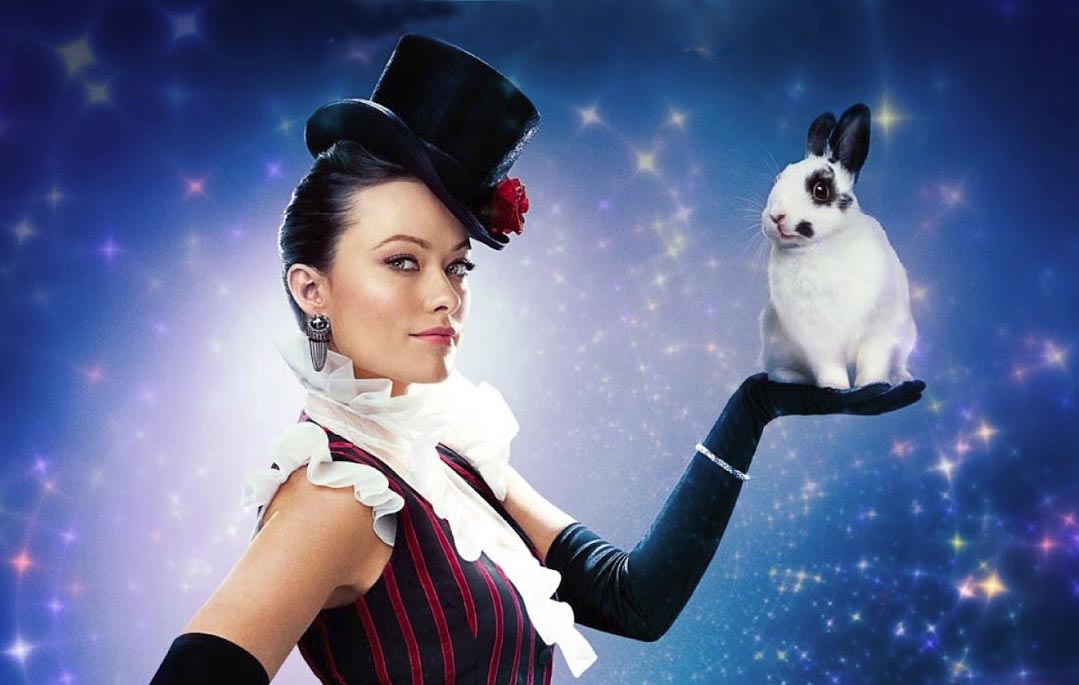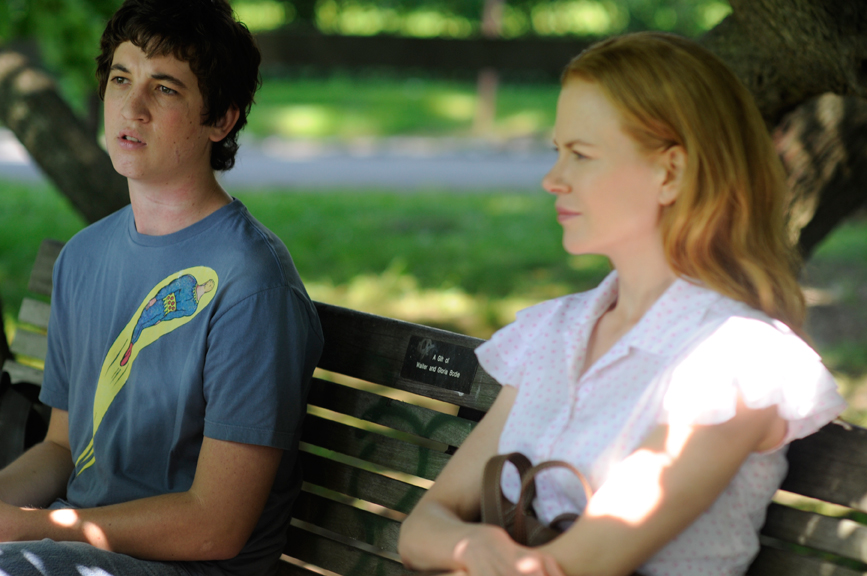 |
| A combination that works. (Shame about the Bubba Ho-Tep sequel.) |
It's weird how things work out sometimes. I was given two six-minute interviews with these gentlemen, which spelled death. What in God's name was I going to do with six minutes? It takes me three minutes to say hello to people.
But I think this turned out really well. The key, I've learned, is to cut to the chase. Have a game plan ready, say a polite hello, and let's go. It also helped that Giamatti and Coscarelli were pleasant and eloquent, especially Coscarelli. Yes, the dude behind Phantasm and Beast Master
is a mensch.
Honestly, though, I would have loved 35 minutes with either guy. Soon, child. Soon.
This interview originally appeared in the February issue of ICON
and is reprinted with permission.
******************
Paul Giamatti, the actor’s actor, loves variety. Don
Coscarelli, the horror maestro behind Phantasm
and Bubba Ho-Tep, has never been
content to just throw gore on the wall and see what sticks.
These two men, who abhor the obvious, were meant to be
together.
Giamatti has a supporting role in and is an executive
producer for Coscarelli’s latest, John
Dies at the End, a delightfully trippy, time-skipping adventure. (You can read my review on page TK.) Two
things stand out about the film, opening February 8th in Philadelphia.
First, Giamatti doesn’t go beyond his assignment. And that’s why he’s
invaluable here and elsewhere: He can cooperate for a film’s greater good as
well as lead the band. Second, Coscarelli shifts from shock to laughs to
insight without losing momentum or creating annoyance.
In separate phone interviews last month, Giamatti and
Coscarelli briefly talked about John Dies
at the End, working together, and their careers.
Giamatti is first.
Pete Croatto: I
don’t know how to predict what you’re doing next. Since the summer, you’ve been
punched in the face by a monkey (Rock of
Ages), appeared in a Don DeLillo adaptation (Cosmopolis), and now a movie from the man behind Phantasm. How would you define your
career path at this point?
Paul Giamatti: Oh,
an unholy mess. I’m glad to hear you say it, that’s exactly how I like it. I
don’t know where I’m going to go next; I don’t know what I’m going to do next.
I do know what I’m going to do next, but I don’t like to have a plan. I like to
do as many different kinds of things as I can. I just feel like it keeps me
interested. It keeps me young. I feel like it’s kind of my job to go far afield
and find different kinds of things to do.
PC: It seems like
John Dies at the End ties into that.
PG: Yeah, sure. I enjoy movies like this. I enjoy kind
of genre things like this and haven’t gotten much of a chance to do something
like this. And I particularly enjoy Don’s movies, so yeah, this is something
out of left field, but part of something that I’d been looking to do—a bit more
fitting with the no plan thing.
PC: I know that you and Don had wanted to do a
sequel to Bubba Ho-Tep, but that fell
through. How did the two of you first meet?
PG: I was working
in Prague on a movie called The
Illusionist and I became aware that a guy that I liked named Eli Roth [the
director of Cabin Fever and Hostel] was also working there. You’re
in Prague, why not hang out together with the other people making another
movie? I got together with him, and he was talking about Don. I had always
liked Don’s movies—I had recently seen Bubba
Ho-Tep, I was very enthusiastic about it. And he said, “Well, I know him.”
And he kind of got us together when I was in LA the next time. Don and I went
out and had a meal and he started talking about the sequel to Bubba Ho-Tep that he wanted to do. We
became friends and tried to work on that, but it was Eli Roth that got us
together.
PC: I remember
first seeing you as a screen actor in Private
Parts, which blows my mind. It will be sixteen years old this year.
PG: Wow, wow…
PC: Did you ever
think that part would be a springboard to a remarkably varied career?
PG: No, no. I
loved doing that movie. That was one of the best experiences I’ve ever had
making a movie. I was doing stage acting, and I figured that’s what I would do,
which would be great. And I did not figure that that movie would particularly
lead to much else at all. I guess it sort of did. I just started following the
movie stuff that came along, and ended up doing more movie stuff than stage
stuff.
PC: So, there was
no master plan: “OK, I’ll transfer from stage to screen”?
PG: No, no. In
fact, I’m going to do a play [Hamlet at
the Yale Repertory Theater] again in a few weeks and I haven’t done a play in eight
years or something like that. I was kind of shocked to realize it’s been that
long that I haven’t done a play. I never intended not to be doing theater. If I
had any plan, it was that I was going to do theater and subsidize a theater
career by doing whatever TV or movie stuff I could do. And then it just changed
into something else.
PC: What is it
about the stage that you love?
PG: Everything
about it is so different. It’s kind of a clichéd thing to say, but stage is the
actor’s medium. You’re in control of it. The live audience and the audience’s
reaction. And the physical space of it, there’s something I actually really
miss: the freedom to think around in that space and act with your whole body,
not sort of just your head for the most part. I miss it. It’s really fun. It’s
kind of joyous in a way. Films can be totally great. It’s hard to describe [the
theater]. It’s just a different thing.
PC: How are you
going to squeeze that performance in? You’re promoting this film, and looking
at your IMDB page, it looks like you have half a dozen projects that are
upcoming or in pre-production. Do you like being this busy?
PG: Not really,
it’s too busy. I’m a little too scattered right now…A lot of those things I
think are probably done. I have something to do in Texas and then I’m going to
do the play. [Laughs] I’m a bit more lazy than it would
appear to be.
And, now, Don Coscarelli.
Pete Croatto: As a director, are you more attracted to
the visual aspects of the story or the emotional? Because in watching Bubba Ho-Tep and John Dies at the End and even Phantasm,
there’s a bit of a yin and yang going on.
Don Coscarelli: Well, I like ‘em both. To me, there’s nothing
like a movie that can capture you emotionally and, at the same time, a beautifully
composed and designed shot. I come from a photography background and I just
revel in that kind of stuff. I don’t know if I can pick one or the other. I like
to shoot for both if I can.
PC: I don’t want
call them horror movies, because it seems almost like a disservice to what
you’re trying to do.
DC: One thing
I’ve noticed during the process of this publicity it’s like retrospectively revisiting
my career. It’s interesting that you bring this up because I look back at the
movies and I think what I started in Phantasm
and continued in Bubba and now
into John is to really explore
mashing up genres if you will. Phantasm was
on many levels a horror film, but it was also a science fiction film, it was
also a fantasy film, and it was also a comedy and it was also an action film.
It had a lot of different things going on. And then I think about Bubba Ho-Tep in a very similar
situation. We ostensibly had a movie about a mummy who is 4,000 years old at an
old folks home, but the focus of the story [was] this drama—this story of dying
with dignity—of these two old geezers. But at the same time it talks a lot
about how we as a culture treat our elderly. It worked on a lot of levels, and
I think John does the same thing.
PC: It’s very
funny and it’s memorably graphic but there’s this philosophical side to it that
caught me off guard.
DC: It really
does. Some of the elements were in David Wong’s book. He had some monologues by
some of these different characters, and I really tried to have them preserved
in the movie because it was talking about some really deep subjects. In the
context of this movie…I think we make that work.
PC: When I saw
that Paul Giamatti was in your movie, my curiosity was piqued. Did you have any
reservations working with him? How did it go?
DC: It went
beautifully because the guy, in my mind, is one of the greatest actors working
on the planet. To have him in a modest-budget horror film, or whatever we’ll
call it—a mash-up—is a gift. To top it all off, he’s a decent and funny guy and
a huge genre fan in his own right, so that part of it was great. And working
with him was a total dream. The other great part about him is that, by nature,
we used some lesser-known actors to play our two leads, especially Chase
Williamson [who plays Dave, the film’s hero]. He had just gotten out of
college, he had been in, like, one YouTube project video and his absolute first
acting job of any sort, he’s on the first day of shooting with me and filming
eight pages of dialogue with Paul Giamatti. Paul led him through it and made it
happen. Some of the best acting in the movie is those two guys in the Chinese
restaurant.







